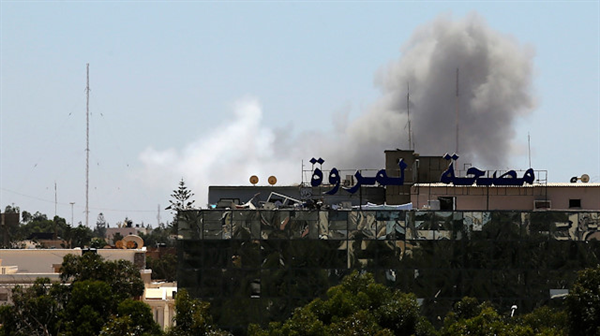East Libya-based forces said their warplanes had attacked targets near oilfields in the southwest of the country on Thursday after fighting in the ar
East Libya-based forces said their warplanes had attacked targets near oilfields in the southwest of the country on Thursday after fighting in the area briefly shut one field.
Mi-35 attack helicopters had struck at Chadian forces preparing to attack Sharara oilfield, Libya’s biggest, a Libyan National Army (LNA) military official said.
The claim could not be independently confirmed. Both sides in Libya’s conflict frequently accuse the other of depending on African mercenaries.
The LNA said on Wednesday it had driven rival factions from the 70,000-barrel-per-day (bpd) El Feel oilfield after carrying out air strikes, leading to a halt in production.
Engineers at El Feel said on Thursday that production was gradually restarting.
The National Oil Corporation (NOC), which operates the field in a joint venture with Italy’s Eni, confirmed the restart, saying no staff had been hurt and facilities had suffered only minor damage.
The fighting reignited a conflict for control of large oilfields in southwestern Libya between competing military alliances that are also battling on the outskirts of the capital, Tripoli.
LNA forces also shelled rival groups aligned with the internationally-recognised government in Tripoli at an agricultural project near El Feel oilfield, the military official said.
The forces aligned with Tripoli had taken control of El Feel for several hours on Wednesday before being driven back.
Libya has been divided since 2014 into rival military and political camps based in Tripoli and the east. Khalifa Haftar controls most of Libya’s oil fields and facilities but oil revenues are controlled by the central bank in Tripoli.
Libya’s oil production has been repeatedly disrupted over the past five years by conflict and blockades, but recently it has been relatively stable at about 1.25 million bpd.
Engineers at Sharara said on Monday the field production was stable at about 280,000-300,000 barrels per day (bpd), and security within the field was good.
